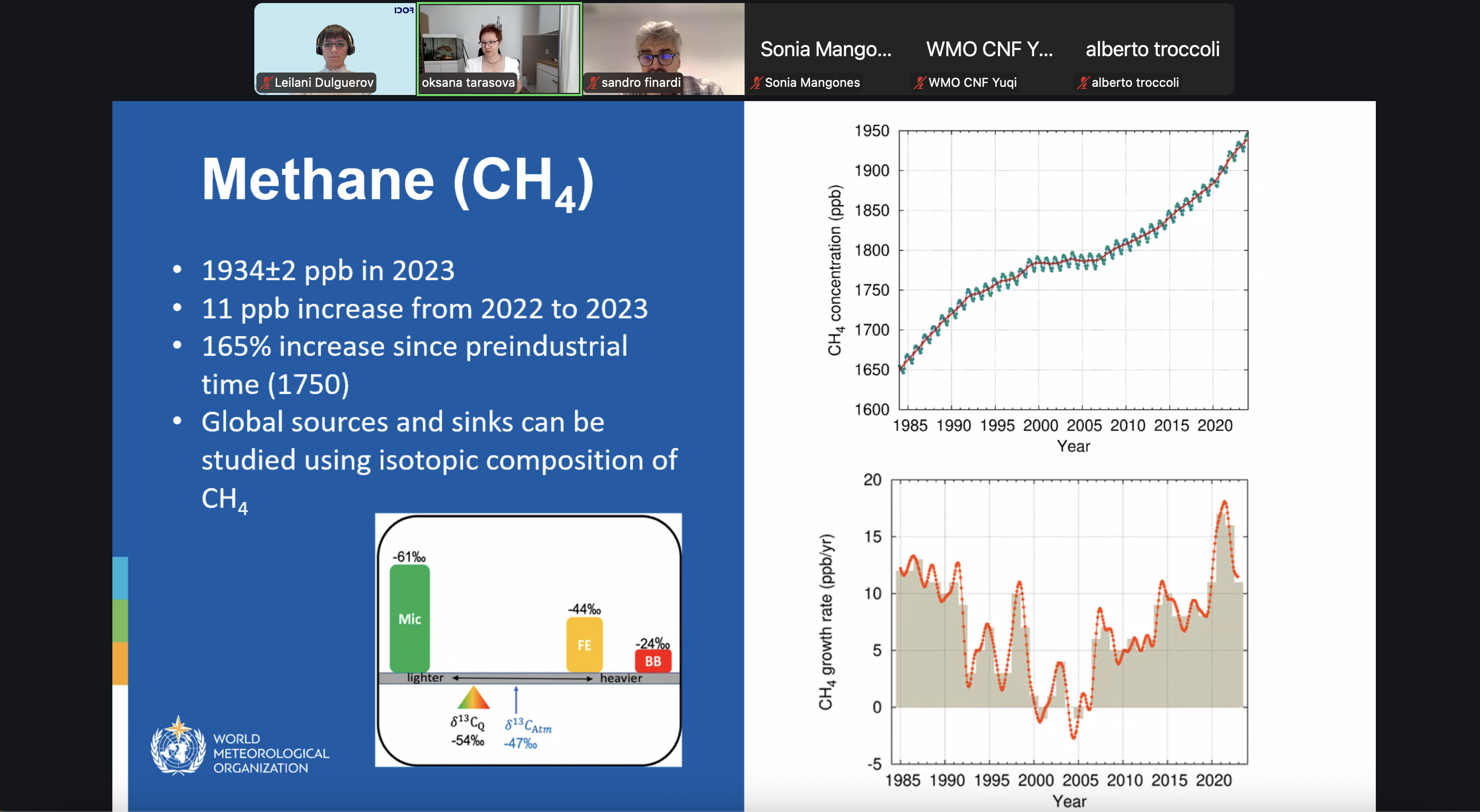The “Win-Win” Climate Strategy: How Tackling SLCFs Saves Lives and the Planet. Adapted from the post-webinar blog post written by Jennifer Aghaji.
Watch the recording here!
On 4 September 2025, the project conducted a webinar focusing on short-lived climate pollutants (SLCPs) and introducing some project results. The event, organized by the World Meteorological Organisation, Stockholm Environment Institute, and University of York, just days before the International Day of Clean Air for Blue Skies, underscored a critical truth: cutting SLCPs is one of the fastest, most effective ways to slow global warming while improving air quality.
Why SLCPs matter: a “win-win” opportunity
While carbon dioxide (CO2) is the main driver of long-term climate change, SLCPs deliver a strong short-term impact. They not only warm the planet but also exacerbate air pollution, harming human health and ecosystems.
According to WMO expert Oksana Tarasova, who presented on the global trends and distributions of methane and black carbon, black carbon exhibits significant upward trends in the 2000 to 2023 period due to biomass burning, industrial emissions, and transportation. These trends are not uniform but dispersed across the globe.

Sandro Finardi also explains in his keynote presentation that “Air quality and climate change represent two sides of the same coin, addressing both issues together could lead to significant synergies and economic benefits while avoiding policy actions that mitigate one of the two issues but worsen the other”.
FOCI’s simulations show that while air pollution controls bring major benefits, they also create complex climate interactions that demand careful study. Still, the evidence is clear: cutting SLCPs delivers a rare “win-win”-reducing global warming in the near term while lowering the risks of respiratory illness, hospital admissions, and premature deaths, especially for vulnerable communities most exposed to polluted air.
Global momentum: local action to international frameworks
That is why regions from Africa to Latin America to Europe are stepping up efforts to regulate, monitor, and eliminate them.
Evelyn Touré from the Université Felix Houphouet Boigny, a member of the African Clean Air Program, explains that “In Africa, the Integrated Assessment of Air Pollution and Climate Change highlights that ambitious SLCP actions could deliver extensive health benefits within just a decade.” The benefits cover energy, waste, transport and other high-emitting sectors. For instance, African nations can significantly improvehealth by 2030 by banning older vehicles and implementing advanced emission controls. Shifting to electric vehicles charged with renewable energy offers significant health and climate benefits by 2063. These actions align with Agenda 2063’s focus on sustainable infrastructure.
Although Latin America is progressing, the region could adopt a multi-pronged approach combining policy, technology, and public engagement, focusing on vulnerable communities to address SLCPs. Bogotá, for example, has begun replacing its bus fleets with electric vehicles, thereby reducing diesel emissions and providing residents with cleaner air to breathe. City leaders view this not just as climate action, but also as a public health measure to reduce respiratory illnesses that strain families and healthcare systems alike.
Across Africa and Latin America, governments are developing National SLCP Plans through the Climate and Clean Air Coalition’s Supporting National Action and Planning initiative, ensuring that transport, waste, agriculture, and energy systems are addressed comprehensively. Europe, meanwhile, has adopted some of the world’s most ambitious legal frameworks.
These regional actions are supported by global frameworks, including the Climate and Clean Air Coalition, the Global Methane Pledge, and the Kigali Amendment to the Montreal Protocol, as well as the UNEA 6 2024 resolution, all of which accelerate international cooperation, funding, and technology sharing.
Collaboration and the path ahead
SEI’s Jenniffer Pedraza emphasized the importance of collaboration in her reflection, stating, “This webinar has made it clear that solutions are available, but only through joint efforts can scientists, policymakers, and communities turn cutting-edge research into practical strategies that yield results.” FOCI is committed to driving this change by building networks that convert knowledge into policy action. The FOCI project’s overall results are expected to be completed in about one year.
Speakers at the event included experts from diverse fields and organisations, emphasising the need to improve understanding of SLCFs’ impact on climate, air quality, and health. The participants heard from Sonia Mangones of the Universidad Nacional de Colombia, Alberto Troccoli, representing the World Energy and Meteorological Council, and Leilani Dulguerov from the WMO, all of whom shared their insights.
Addressing SLCPs is among the quickest methods to slow warming. It also represents a direct investment in public health and economic resilience. Climate change and air quality policies need to be coordinated to maximise benefits and reach a win-win strategy. The way forward is clear: by reducing these pollutants, we can save lives today and build a safer climate for tomorrow.
Download the presentations:

